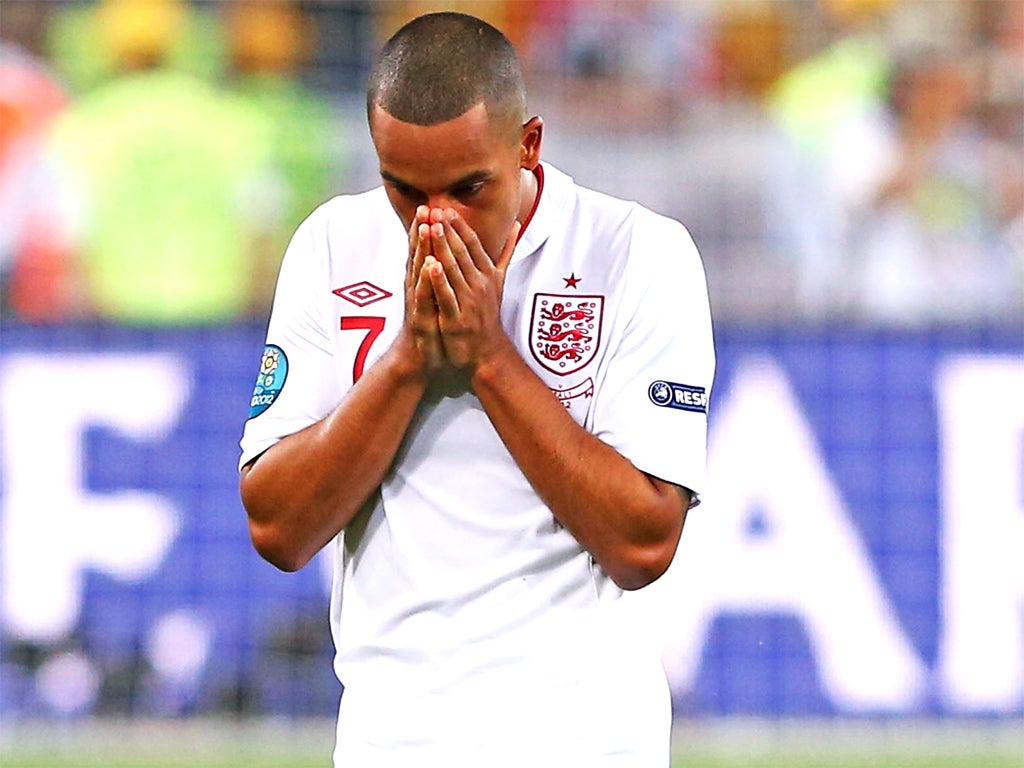Steve Tongue: The reality behind Greg Dyke's radical thinking for the England team
The FA chairman has set out his vision for the national team

Your support helps us to tell the story
From reproductive rights to climate change to Big Tech, The Independent is on the ground when the story is developing. Whether it's investigating the financials of Elon Musk's pro-Trump PAC or producing our latest documentary, 'The A Word', which shines a light on the American women fighting for reproductive rights, we know how important it is to parse out the facts from the messaging.
At such a critical moment in US history, we need reporters on the ground. Your donation allows us to keep sending journalists to speak to both sides of the story.
The Independent is trusted by Americans across the entire political spectrum. And unlike many other quality news outlets, we choose not to lock Americans out of our reporting and analysis with paywalls. We believe quality journalism should be available to everyone, paid for by those who can afford it.
Your support makes all the difference.Greg Dyke said 'It is a very small talent pool and it is getting smaller'
Reality There can be no serious argument on either point. Until 1990, around 75 per cent of players in the top flight of English football were qualified for the national team. The figure has been in decline ever since, dipping below 50 per cent for the first time at the start of the 2000s and reducing to a low of 32 per cent last season, the smallest percentage of the major European countries. The number of players under 21 is a particular worry: last season they filled only 2.3 per cent of the total number of minutes played, compared to 6.2 per cent in Germany and 7.3 per cent in France. It might, however, be pointed out that even when 75 per cent of the old First Division were eligible, England won one trophy, for which they had home advantage.
Dyke said 'The FA doesn't control player development, the clubs do, and we also don't determine how many young players break into first teams. We still have a serious problem in the transition of young players – and particularly young English players – out of academies into first-team football'
Reality It is demonstrably no good appealing to the national interest. The FA can only argue that a spine of English/British players is an asset, given the style of football played here.
English/British managers (and owners) are more likely to agree, but their numbers are also in decline. The only other answer may be to threaten that clubs not bringing players through will have their academy status downgraded; though any nationality quota may be challengeable in law.
Dyke said 'The first target is to at least reach the semi-finals of the Euro Championship in 2020 and the second is for us to win the World Cup in 2022'
Reality Even in a culture obsessed with targets, it is foolish for the FA to offer such hostages to fortune.
As with the 2008 "FA Vision" targeting "the semi-finals of major competitions by 2012" (plus a successful bid to stage the 2018 World Cup and opening the National Football Centre by 2010) the hope is presumably that nobody will remember them. Whoever is managing the team in seven years' time will not thank Dyke for that one.
Dyke said 'The FA didn't use the unique opportunity it had to make stronger demands or seek necessary assurances from the fledgling league'
Reality Absolutely right. One of the specific aims of the Premier League breakaway in 1992 was that "the prospects of the England team would at once be enhanced". The "Football Association Premier League" was supposed to be controlled, as the original name implied, by the FA, cut to 18 teams and could have had, for instance, the mid-season break demanded by every subsequent England manager. But now the genie is out of the bottle.
Dyke said 'It's important that football as a whole recognises the problem and also buys into the possible radical solutions'
Reality Football, unfortunately, is not "a whole" in England. The Premier League has its own agenda, not unconnected with there being so many foreign owners and managers as well as players. So the PL wants the 2022 World Cup that England are targeting played in the summer heat of Qatar, which will minimise any chance of winning it. Even the League Managers' Association and Professional Footballers' Association, led by patriotic Englishmen, represent increasing numbers of overseas players and managers with no interest in the England team. And "radical" is not a word that football has ever cared for.
Dyke said 'If we want to do better, things have to change. English football, I think, is a tanker which needs turning'
Reality Cries of "hear, hear" from across the land. If anyone is to prompt change from within the FA, Greg Dyke would appear to have as good a chance as his predecessors. He has the personality, and could prove a tough negotiator as long as he has something to bargain with; which may or may not turn out to be the case. His background outside football could enable him to take a more original view. Gradual reforms to the FA are making it a less cumbersome organisation, but it is still a sizeable tanker.
Join our commenting forum
Join thought-provoking conversations, follow other Independent readers and see their replies
Comments